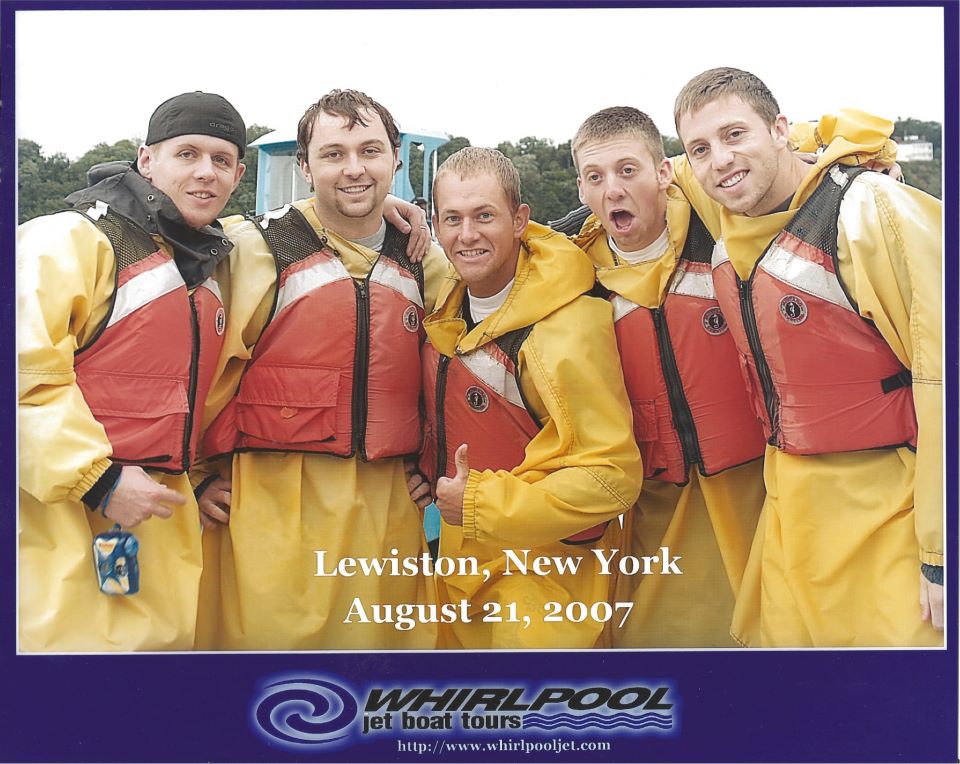We don’t pretend to be experts on the subject of credit, but we’ve researched it enough to feel comfortable “spending” a few points of our extremely good credit score to obtain travel bonuses that enable us to get out and see the world, flying for free and staying in free hotels. Honestly, it’s become a bit of an addiction – the good kind, if there is such a thing.

My family’s 6 RT tickets to Panama – We paid $261 for $4800 in tickets!
First off, the idea of “excellent” credit doesn’t vary much over a score of about 730. As a general rule, creditors won’t offer any better rate for someone who has a 820 score over someone whose score is 731. What that means is that I have some buffer room between my current score of 788 and the 750 range.
The reality is that I don’t have any reason to borrow money at the moment, so it’s not like I’m super protective of the score, but I still want to be ready in the event that an opportunity does come up, so I’m better off to play it safe.
As we’ve discussed before in our “Doesn’t it Hurt my Credit” post, the bulk of my credit score is determined by two major measures: 1) Do I make my payments on time? and 2) How much do I have in balances relative to my available credit? If I take care of both those issues, which I do, diligently, 65% of my score will be rock solid. I always, always make my payment on time, and always make it in full.
The part of my credit that is affected by my free-travel-addiction is relatively small: 1)How many recent credit inquiries have I had? and 2)What is the average length of my credit histories? Together these pieces account for about 25% of my score. Even still, I have to keep a close eye on them, especially if I want to keep at this (which I do).
Now, one of the most beautiful factors in the credit score calculations is that the recent inquiries “fall off” after 2 years, so each time those disappear from my credit score, I’ve got an open door to load up again. Also, if I apply for several cards on one day, they won’t see a bunch of recent inquiries and deny me based on that factor.

My son, conquering the cannon at Portobelo, Panama
I track my credit score with two services, www.CreditSesame.com and www.CreditKarma.com. Theoretically, these programs track my Experian and TransUnion scores with the same algorithm that those monitors use to calculate my history into a numerical score. I don’t trust them implicitly, but I do use them to gauge the impact of my behavior.
Well, about 3 of my inquiries had fallen off recently and I started getting greedy. Sheldon inspired me with his App O Rama, and I figured it was time for me to get brave, too. I’ve been at this for quite a while now, and I’ve played it nice and easy, but one of my inspirations has been watching people pull down 5-6 cards at once, making me feel like 1 or 2 was nothing at all.
Rather than list all mine off, I’ll just say that I applied for all the same cards Sheldon did, except I opted for the Barclaycard Frontier Airlines card over the Gold Delta SkyMiles® Credit Card from American Express, just because I’ve already had the Delta card (but canceled it a couple of months ago before it came up for an annual fee). In the end, I was approved for all 5 cards, and after meeting a spending requirement total of $5250, I’ll add about 300,000 miles and points to my beautiful running total of well over a million.
I did have to “bird-dog” a couple of applications, following up with phone calls and providing some more details to friendly people on the telephone. Incidentally, while I’m telling you about this, I’ll also say that I use a very specific tactic in speaking with customer service reps – I empower them by “asking them to do me a favor.” Usually it’s just about pushing an application through right away, but I’ve also had success “bumping” my bonuses to higher levels that way, too. People like to feel like you’re asking them to do something, not telling them to do something.
I’ll just now summarize a few rules for planning an App O Rama that you can use if you plan to get brave. That said, you don’t need to run out and do it this way. We’d be happy if you just embrace the idea and get started wanderlusting with us with free-travel credit cards.
Rules for a credit card App O Rama
- Be sure your credit score could handle losing 10-20 points without dropping to a lower tier. It doesn’t mean it will drop that much for sure, but just in case.
- Know how many inquiries you’ve had, and don’t exceed 20 inquiries in any 2 year period (many people do this by spacing inquiries into 5 cards every 6 months).
- Try to spread applications to different banks which use different credit monitors.
- Only apply for 1 Chase card at a time.
- Don’t take on more in “minimum spending requirement” than you can do in your normal course of spending. The moment you spend just to meet a requirement, you’re on the losing end of things.
- Keep diligent track of what you apply for when, when the min spend req is due, when the cards will have an annual fee, and other important details. I keep a Google Docs spreadsheet and put alerts on my Google Calendar.
- Search out the best application links possible. The offers do vary from site to site, and you get rewarded for diligent research.
- Follow up by calling right away. The sooner you can force a decision, the better off your odds are. If you happen to get denied, call them up and ask for reconsideration.
- Always apply separately for your spouse, and don’t add a spouse on your account.
- Know which cards have first year annual fees, and which are waived. Don’t get yourself on the hook for a bunch of fees.
- Don’t apply for more credit cards if you’re carrying a balance. Any time you actually use the cards as credit for money you don’t have and pay interest, you ruin the benefit of gathering the points.
- Pick the cards you want based on the rewards you want, too. No sense in gathering points you won’t be using.
If you have any other questions or thoughts, we’d love to hear them. Thanks for visiting, and don’t hesitate to share our site with others.










 The
The 


 We have to contend with spammers who wallpaper Facebook and website sidebars with fake offers of free iPads, Southwest flights, and Disneyland tickets. Naturally, we get lumped in with these clowns despite our clamors of innocence and even people who know us well and comment on our photos with wistful wishes don’t truly understand just how real and easy all of this is.
We have to contend with spammers who wallpaper Facebook and website sidebars with fake offers of free iPads, Southwest flights, and Disneyland tickets. Naturally, we get lumped in with these clowns despite our clamors of innocence and even people who know us well and comment on our photos with wistful wishes don’t truly understand just how real and easy all of this is.




